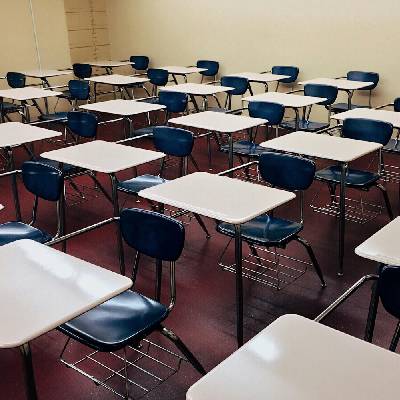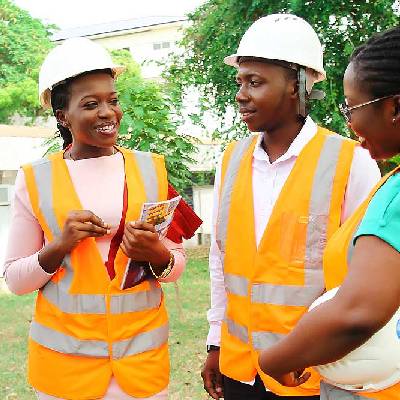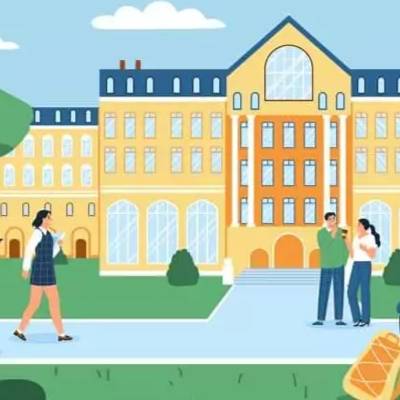
Diploma in Special Needs Education (SNE) examination is a two-year course taken by teachers who wish to specialize in Special Needs Education after they complete the teacher training course at various levels. The Programme enables you to acquire solid theoretical and practical skills especially designed to meet the unique needs of children with Disabilities. The strength of the programme is that it links academic teaching with the learning of practical skills.
The teachers who pursue the course are awarded a Diploma in Special Needs Education.
SNE Teaching Practice
All SNE candidates must take Teaching Practice to qualify for the award of SNE Diploma.
Each candidate must be assessed six (6) times cutting across the different subjects registered for examination for the regular candidates and three (3) times for the in-service candidates.
The candidates will be subjected to external assessment during the final teaching practice.
Upon completion of Teaching Practice, the candidate's TP marks are to be uploaded into the KNEC website by the external assessors in liaison with the College Principal immediately after the final assessors meeting at the examination center.
It is the responsibility of the college/institution to ensure that TP marks are uploaded onto the KNEC marks portal.
Continous Assesment Test (CAT) marks and Project Marks
The colleges are expected to compile two (2) sets of the candidate's course work marks (CAT 1 and 2) and Project marks.
Entry Requirements
The regulations for registration of Diploma in Special Needs Education (SNE) are:
- Primary Teacher Education - P1 Teacher certificate by training or
- P1 teacher who has been promoted by Ministry of education through Teacher Proficiency Courses;
- KCSE mean grade of D+ or KCE Division 3 and in addition have a KNEC Certificate in ECDE or Ministry of Education DICECE certificate
Candidates wishing to take SNE Part One (1) examination for the first time must have undertaken two terms of either residential or in-service training in an institution approved by the KNEC. Those wishing to take SNE Part Two (2) examination must have done part one and covered three terms of either residential or in-service training in addition to fulfilling the requirements for teaching practice.
Objectives of Special Needs Education (SNE)
This Diploma in Special Needs Education (SNE) is designed specifically to train potential candidates to teach children with a wide range of disabilities, including those with various degrees of intellectual, behavioral, and sensory problems, or a combination of these.
The candidates will acquire curriculum development and teaching pedagogy to enable children to acquire literacy and numeracy competencies.
Candidates who complete this course will:
- have a basic knowledge of the key areas of child development, educational theory, and the aetiology of the major types of disabilities;
- have the skills necessary for the identification of specific disabilities and the diagnosis and assessment of individual weaknesses;
- be able to develop competency in a range of teaching skills to suit the needs of the children being taught; and
- be able to plan and evaluate individualised intervention programmes for their own area of disability specialisation.
What you will study
- Special Needs Education
- Child Development
- Planning and organizing instruction in the Inclusive Classroom
- Working with Speech and Language
- Specific Learning Disabilities (Reading, Writing and Number Difficulties)
- Physical & Health Impairments
- Autism Spectrum of Disorders & Behaviour Disorders
- Visual & Hearing Impairment
- Intellectual Impairment
Related articles
-

A Guide to Civil Engineering Degree and Diploma Programs in Kenya
08-Nov-2025 -

Electrical Engineering in Kenya: A 2025 Guide for KCSE Graduates
08-Nov-2025 -

Mechanical Engineering in Kenya: A 2025 Guide for KCSE Graduates
08-Nov-2025 -

Engineering Courses in Kenya: A Guide for 2025 KCSE Graduates
08-Nov-2025 -

Education Pathways in Kenya — From Basic Education to Tertiary | College Guide
06-Nov-2025 -

The Bird and the Mirror: A Reflection on Identity, Perception, and Illusion
07-Feb-2025
Colleges offering Special Needs Education (SNE)

Emgwen
The Golden Gate College

Kangundo
Tala School of Management Studies

Thika Town
Equip Africa Institute

Thika Town




